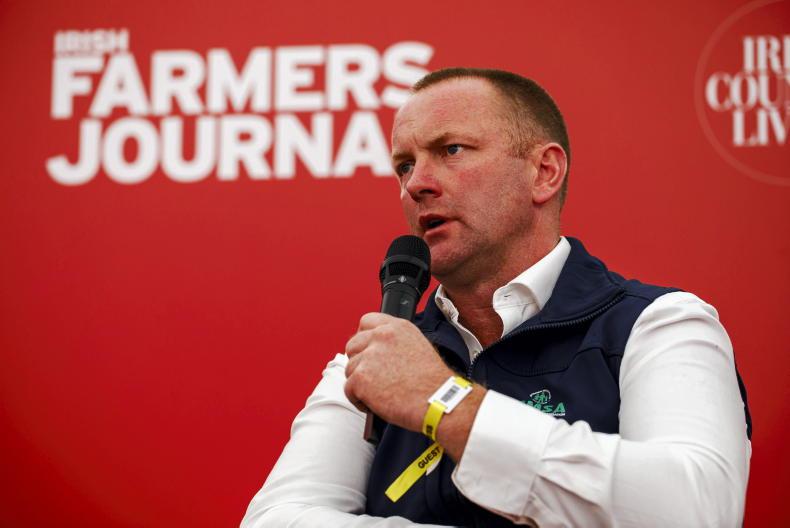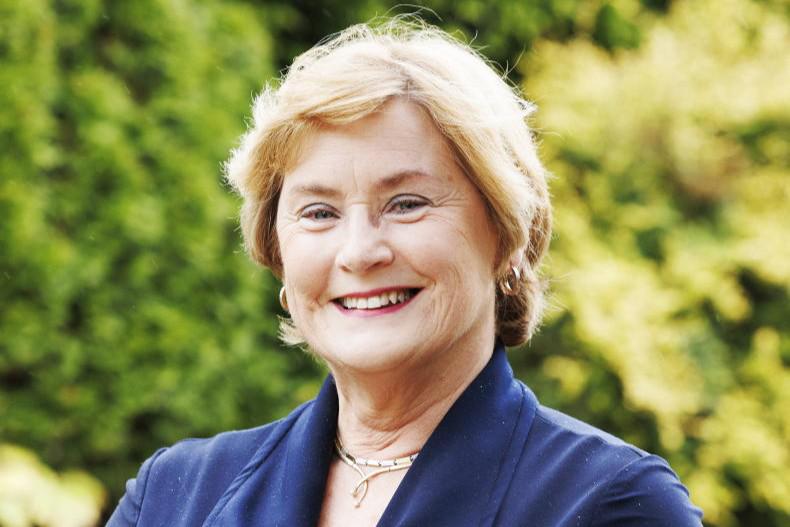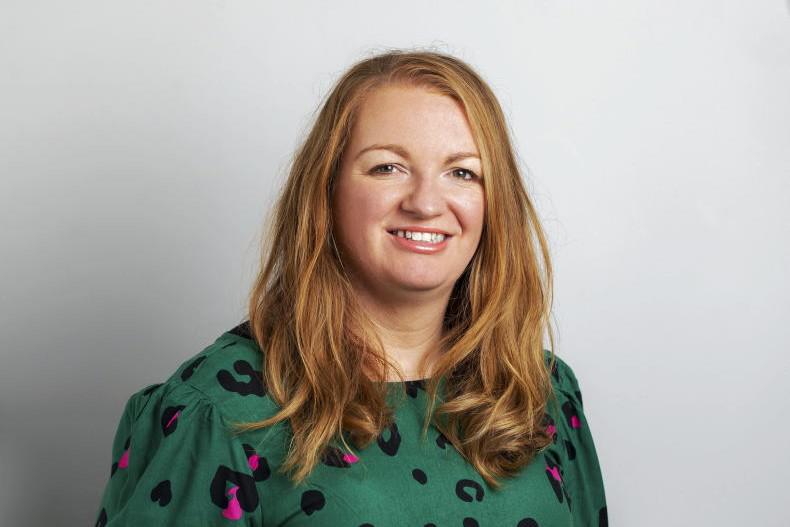Financially empowering women in farming is essential for the sustainability and development of agriculture in Ireland, and for overall economic growth. It enhances women’s ability to actively participate in agricultural activities, to make more informed decisions and, as a result, improve their wellbeing and wealth potential.
However, the barriers that women face currently in terms of accessing finance can hinder this from happening.
These are some of the common stumbling blocks women in farming face, when trying to access credit and, most importantly, assistance that is available to help improve this situation.
Lack of collateral
Frequently, women have limited access to land ownership, so may not have land or major assets registered in their own names. This is an issue as essentially they do not have anything to use as collateral to qualify for loan finance. They may also lack a lengthy credit history, independently, if they have not previously had loans in their own names, such as a mortgage or car loan.
Traditional inheritance practices of granting farm ownership to sons is a huge barrier, and limits women in terms of succession rules and farm rights.
Traditional gender roles
Traditional gender roles may limit women’s participation in the overall financial decision-making process on their farm. This results in their having limited knowledge, and less confidence, in dealing with financial institutions, whether it is borrowing, saving, or investing.
Societal norms can still limit some women, in terms of accessing financial services independently, as responsibility for finances can be viewed as the man’s role, be that a father, brother or husband.
Cyclical nature of farming
Farming is seasonal and cyclical by nature, so sometimes lenders are deterred from lending, as they are concerned that farmers in general will not be able to meet regular repayment schedules. This is because income levels are sporadic and inconsistent and can be determined by external factors, not under the farmer’s control.
Risk attitude by banks
Similarly, some banks may view small-scale farming ventures as risky, and women can face the challenge of trying to convince them otherwise, particularly if finance is needed for a new or untried farm venture.
Networking opportunities
Access to finance is often influenced by networks and connections, and women, most especially in more rural areas do not have a professional network or work colleagues to turn to.
Men tend to have stronger social networks which enables them to access useful information, in terms of the financial resources available to them, whether it is grant-aid or loan options.
Now, with more women actively engaged in farming in Ireland, and in farm development and modernisation, access to finance is absolutely crucial for them. It means they can invest in their farms and increase their output, resulting in an improvement in their livelihoods and their overall financial and personal well-being.
Credible credit options
Some of the essential resources and supports available to assist women with farm finances are as follows:
Government Grants and Subsidies
There are several grants and supports available to support farmers, including women, in farming. Anyone involved in running a farm business should ensure they are aware of all grants available, especially as grant-aid terms and timing can vary and change occasionally.
One grant is The Women Farmers’ Capital Investment Scheme, which provides an incentive to female farmers to upgrade their agricultural buildings and equipment, by providing support to meet the considerable capital costs associated with the maintenance of their enterprises. It is aimed at promoting gender equality, employment, growth, generational renewal, social inclusion and local development in rural areas, by supporting the participation of women in farming. See gov.ie/en/service/14a7b-women-farmer-capital-investment-scheme/
Women in agriculture networks
There are networks and collective groups that focus on supporting women in agriculture. They aim to provide information on relevant resources and funding options available to women farmers, along with tackling inclusivity and gender balance in Irish farming.
One such group is the Women in Agriculture Stakeholders Group (WASG), which is active on social media, including Facebook, and publicises meetings and information seminars, which provide education and networking opportunity. facebook.com/WomenInAgStakeholdersGroup
Local Enterprise Boards/
Small Business Loans
Local Enterprise Boards provide support and advice to all types of entrepreneurs, including women in farming, on how best to access funding and apply for grants to grow their businesses (localenterprise.ie). Similarly, local Credit Unions have personal loans up to €15,000, small business loans and specific agri-loans that are worth looking at, and Credit Union membership is not specifically required, in some cases. creditunion.ie/what-we-offer/loans/
Banks and conventional lenders
The Teagasc website has solid advice on borrowing and general loan requirements, such as a record of cash deposits and current farm accounts, for when women in farming need to approach their bank or a similar lender.
Remember, while interest rates and the loan term are set by the lender, they should be open to negotiation. The interest charged is also allowable as a tax-deductible expense against farm business profits. teagasc.ie/rural-economy/farm-management/financial-analysis/
Microfinance Loans
Microfinance institutions offer small loans to entrepreneurs, including women farmers, who may not be able to access loans through a conventional financial institution. These loans can then be used for a variety of farming-related purposes.
There are private companies to review online, and Microfinance Ireland is backed by the Government to provide small development loan funding. Local Enterprise offices can assist in the application process. See microfinanceireland.ie
Educational and training programmes
Education and training programmes related to agriculture will greatly enhance women farmers’ skills and knowledge. The financial management aspects of a farm business are central to many. General business and financial management training is invaluable, too. Some of these courses are low-cost State-sponsored education, and some are even free of charge. teagasc.ie/education/courses/
When looking to borrow, support capital expansion, or otherwise fund farm business development, it is very important for anyone to research all options thoroughly and to fully understand the associated terms and conditions.
If at all unsure, the assistance of a professional agricultural or financial advisor is recommended. Informed financial decisions in relation to financing farming ventures, or any enterprise, is always the goal. Never be afraid to question anything that is unclear around money. The only person who will ever look silly is the one who doesn’t properly question a decision affecting their future financial wellbeing.
Carol Brick hails from a dairy farm in Kilmoyley, Co Kerry and is managing director of CWM Wealth Management Ltd. She has a particular interest in financial planning for Irish women and launched HerMoney, a specialist service, in 2017 with an all-female team of advisors. Carol advocates for urgent legislative change around the qualifying criteria for a State pension. If you have a question for Carol, email advice@farmersjournal.ie.
Read more
Protecting older adults from financial abuse
Finance: thinking of investing a lump sum of money?
Financially empowering women in farming is essential for the sustainability and development of agriculture in Ireland, and for overall economic growth. It enhances women’s ability to actively participate in agricultural activities, to make more informed decisions and, as a result, improve their wellbeing and wealth potential.
However, the barriers that women face currently in terms of accessing finance can hinder this from happening.
These are some of the common stumbling blocks women in farming face, when trying to access credit and, most importantly, assistance that is available to help improve this situation.
Lack of collateral
Frequently, women have limited access to land ownership, so may not have land or major assets registered in their own names. This is an issue as essentially they do not have anything to use as collateral to qualify for loan finance. They may also lack a lengthy credit history, independently, if they have not previously had loans in their own names, such as a mortgage or car loan.
Traditional inheritance practices of granting farm ownership to sons is a huge barrier, and limits women in terms of succession rules and farm rights.
Traditional gender roles
Traditional gender roles may limit women’s participation in the overall financial decision-making process on their farm. This results in their having limited knowledge, and less confidence, in dealing with financial institutions, whether it is borrowing, saving, or investing.
Societal norms can still limit some women, in terms of accessing financial services independently, as responsibility for finances can be viewed as the man’s role, be that a father, brother or husband.
Cyclical nature of farming
Farming is seasonal and cyclical by nature, so sometimes lenders are deterred from lending, as they are concerned that farmers in general will not be able to meet regular repayment schedules. This is because income levels are sporadic and inconsistent and can be determined by external factors, not under the farmer’s control.
Risk attitude by banks
Similarly, some banks may view small-scale farming ventures as risky, and women can face the challenge of trying to convince them otherwise, particularly if finance is needed for a new or untried farm venture.
Networking opportunities
Access to finance is often influenced by networks and connections, and women, most especially in more rural areas do not have a professional network or work colleagues to turn to.
Men tend to have stronger social networks which enables them to access useful information, in terms of the financial resources available to them, whether it is grant-aid or loan options.
Now, with more women actively engaged in farming in Ireland, and in farm development and modernisation, access to finance is absolutely crucial for them. It means they can invest in their farms and increase their output, resulting in an improvement in their livelihoods and their overall financial and personal well-being.
Credible credit options
Some of the essential resources and supports available to assist women with farm finances are as follows:
Government Grants and Subsidies
There are several grants and supports available to support farmers, including women, in farming. Anyone involved in running a farm business should ensure they are aware of all grants available, especially as grant-aid terms and timing can vary and change occasionally.
One grant is The Women Farmers’ Capital Investment Scheme, which provides an incentive to female farmers to upgrade their agricultural buildings and equipment, by providing support to meet the considerable capital costs associated with the maintenance of their enterprises. It is aimed at promoting gender equality, employment, growth, generational renewal, social inclusion and local development in rural areas, by supporting the participation of women in farming. See gov.ie/en/service/14a7b-women-farmer-capital-investment-scheme/
Women in agriculture networks
There are networks and collective groups that focus on supporting women in agriculture. They aim to provide information on relevant resources and funding options available to women farmers, along with tackling inclusivity and gender balance in Irish farming.
One such group is the Women in Agriculture Stakeholders Group (WASG), which is active on social media, including Facebook, and publicises meetings and information seminars, which provide education and networking opportunity. facebook.com/WomenInAgStakeholdersGroup
Local Enterprise Boards/
Small Business Loans
Local Enterprise Boards provide support and advice to all types of entrepreneurs, including women in farming, on how best to access funding and apply for grants to grow their businesses (localenterprise.ie). Similarly, local Credit Unions have personal loans up to €15,000, small business loans and specific agri-loans that are worth looking at, and Credit Union membership is not specifically required, in some cases. creditunion.ie/what-we-offer/loans/
Banks and conventional lenders
The Teagasc website has solid advice on borrowing and general loan requirements, such as a record of cash deposits and current farm accounts, for when women in farming need to approach their bank or a similar lender.
Remember, while interest rates and the loan term are set by the lender, they should be open to negotiation. The interest charged is also allowable as a tax-deductible expense against farm business profits. teagasc.ie/rural-economy/farm-management/financial-analysis/
Microfinance Loans
Microfinance institutions offer small loans to entrepreneurs, including women farmers, who may not be able to access loans through a conventional financial institution. These loans can then be used for a variety of farming-related purposes.
There are private companies to review online, and Microfinance Ireland is backed by the Government to provide small development loan funding. Local Enterprise offices can assist in the application process. See microfinanceireland.ie
Educational and training programmes
Education and training programmes related to agriculture will greatly enhance women farmers’ skills and knowledge. The financial management aspects of a farm business are central to many. General business and financial management training is invaluable, too. Some of these courses are low-cost State-sponsored education, and some are even free of charge. teagasc.ie/education/courses/
When looking to borrow, support capital expansion, or otherwise fund farm business development, it is very important for anyone to research all options thoroughly and to fully understand the associated terms and conditions.
If at all unsure, the assistance of a professional agricultural or financial advisor is recommended. Informed financial decisions in relation to financing farming ventures, or any enterprise, is always the goal. Never be afraid to question anything that is unclear around money. The only person who will ever look silly is the one who doesn’t properly question a decision affecting their future financial wellbeing.
Carol Brick hails from a dairy farm in Kilmoyley, Co Kerry and is managing director of CWM Wealth Management Ltd. She has a particular interest in financial planning for Irish women and launched HerMoney, a specialist service, in 2017 with an all-female team of advisors. Carol advocates for urgent legislative change around the qualifying criteria for a State pension. If you have a question for Carol, email advice@farmersjournal.ie.
Read more
Protecting older adults from financial abuse
Finance: thinking of investing a lump sum of money?










SHARING OPTIONS